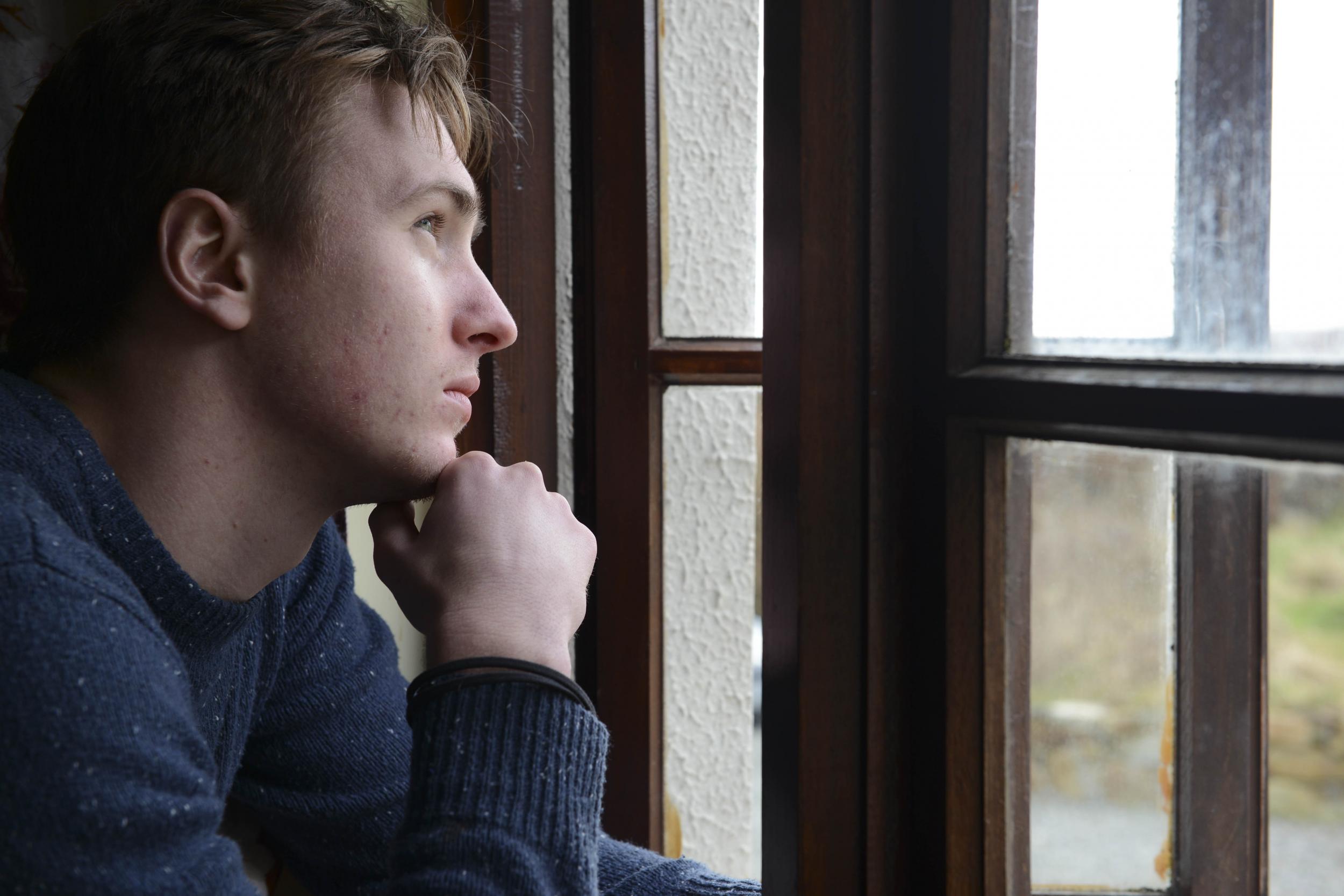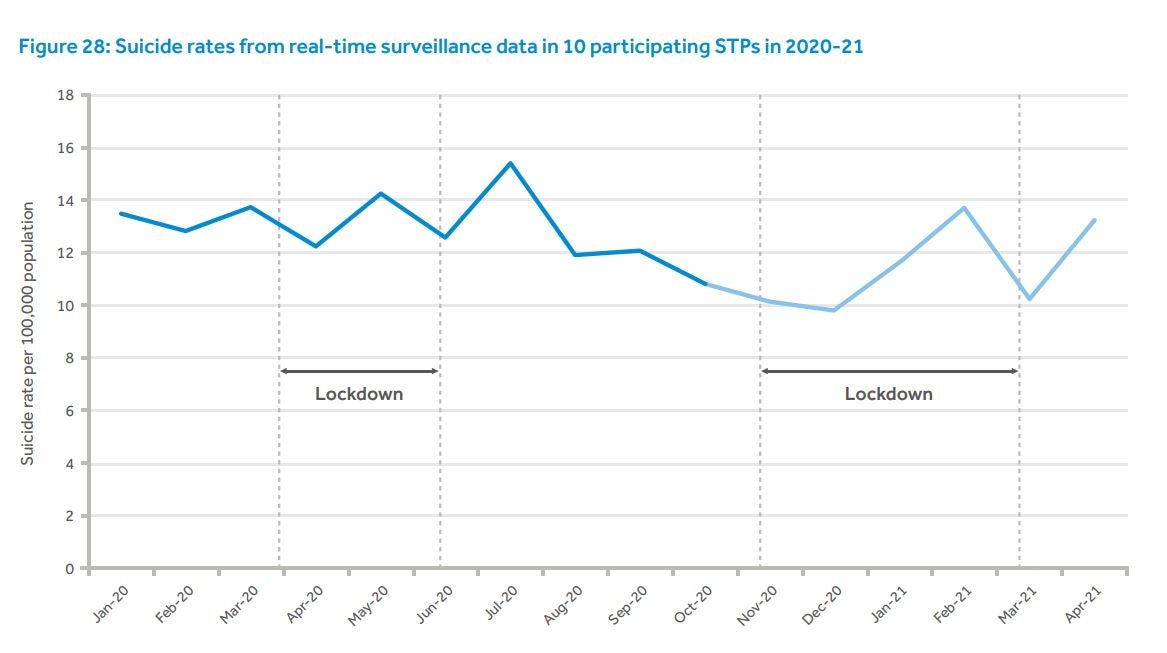Suicides rose prior to the pandemic but no evidence of rise since, researchers say
Researchers yet to find evidence of an increase in suicides during pandemic, new report says

Your support helps us to tell the story
From reproductive rights to climate change to Big Tech, The Independent is on the ground when the story is developing. Whether it's investigating the financials of Elon Musk's pro-Trump PAC or producing our latest documentary, 'The A Word', which shines a light on the American women fighting for reproductive rights, we know how important it is to parse out the facts from the messaging.
At such a critical moment in US history, we need reporters on the ground. Your donation allows us to keep sending journalists to speak to both sides of the story.
The Independent is trusted by Americans across the entire political spectrum. And unlike many other quality news outlets, we choose not to lock Americans out of our reporting and analysis with paywalls. We believe quality journalism should be available to everyone, paid for by those who can afford it.
Your support makes all the difference.Suicides in the UK rose prior to the pandemic however evidence is yet to be found of an increase during the last two years, new research says.
A national report into the suicides across the UK found they rose by 8 per cent in 2018-19, however early figures suggest there has was not an increase in the first year of the pandemic.
The report, carried out by a team of experts working for the University of Manchester, showed nearly one third of suicides between 2009-2019 were of patients under the care of mental health services, which is an average of 1,661 a year.
Data for the pandemic showed 422 suspected suicides of mental health patients between March 2020 and March 2022. Figures for 10 areas of the country showed a decrease in suspected suicides after July and an increase again from December 2020 to February 2021.
Information shared on the deaths of half of these patients indicated that 30 per cent had experienced anxiety and isolation or loneliness prior to their suicide
However, researchers warned suicides analysed during the pandemic were less than one fifth of those recorded in a year and so findings could not be representative of overall rates.
The National Confidential Inquiry team will be launching real time survellience on suicides this year.

According to the findings on patient deaths in the decade prior to the pandemic, 46 per cent of patients were found to have had contact with mental health services in the seven days prior to their suicide.
The report said: The immediate risk of suicide at the time of final service contact was judged by clinicians to be low or not present for the majority of patients who died by suicide.”
The majority of patients who died had a history of self-harm and a high proportion of those with alcohol and drug misuse.
There were an estimated 67 suicides by mental health in-patients in the UK in 2019. Half of these patients were on agreed leave and 35 per cent died whilst on a ward.
In the same year 180 people died by suicide in the three months after discharge from a mental health hospital.
“The highest risk was in the first 1-2 weeks after discharge and the highest number of deaths occurred on day 3 post discharge,” the report said.
For children, those under 18, researchers found a significant increase in suicides in 2017-18 and said the increase during over 10 years had been driven by higher levels of girls aged 16 and boys aged 17 taking their own lives.
Between 2015 and 2019 532 people who had experienced domestic violence too their own lives, this represents 9 per cent of suicides during the period. The majority of these patients, 73 per cent, were women.
Join our commenting forum
Join thought-provoking conversations, follow other Independent readers and see their replies
Comments